Toco Hills, Then and Now
Decades in the making, Toco Hills is now an established, thriving, multi-generational Orthodox community in the heart of Atlanta.
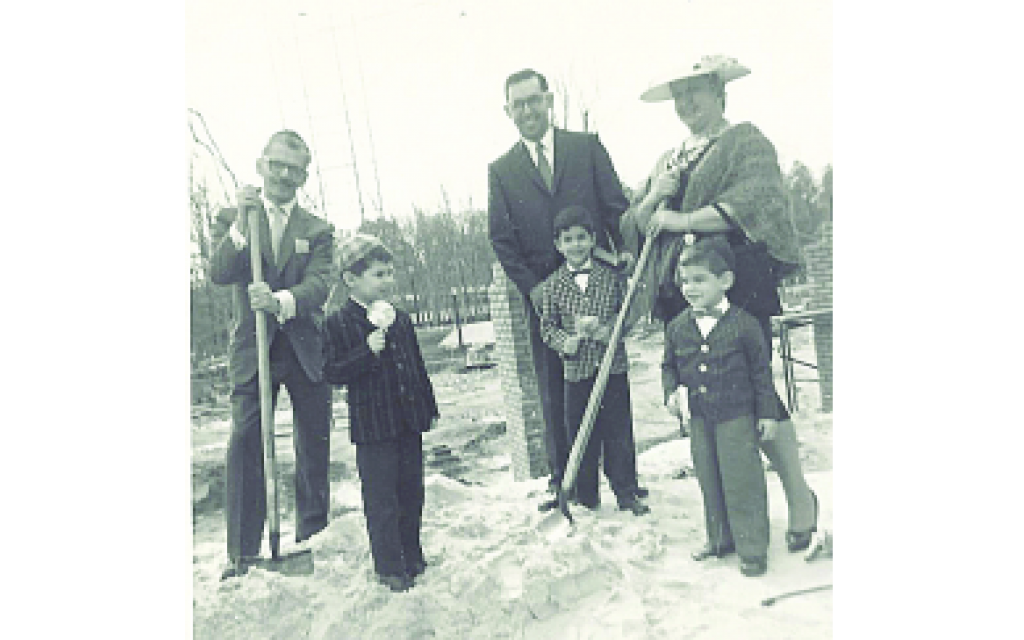
To a newcomer, it might seem that the vibrant, bustling, well-structured Orthodox Jewish community in the Toco Hills neighborhood, home to young professionals, families and Holocaust survivors alike, has been long rooted in Atlanta. But in fact, it took decades to develop.
Steve Gilmer, who opened one of the city’s first kosher groceries, The Kosher Gourmet, in 1983, says that many people have no idea. When construction recently forced walkers to inconveniently cross the street, Gilmer said he remembers when there were no sidewalks at all. “They don’t realize how far we’ve come,” he said.
“The community has blossomed over many years due to the growth of Beth Jacob and what Rabbi Emanuel Feldman started.”
Get The AJT Newsletter by email and never miss our top stories Free Sign Up
When Beth Jacob’s leadership purchased the land on Lavista Road to construct the new synagogue building for the growing congregation in the early 1960s, there were no Jews at all in the area, let alone Orthodox Jews. Geographically, the area along and around Lavista Road between Briarcliff and North Druid Hills roads was a developing area in DeKalb County.
Rabbi Ilan Feldman has been spiritual leader of Congregation Beth Jacob since the retirement 27 years ago of his father, Rabbi Emanuel Feldman. “When my family moved into Toco Hills, my brothers and I played on construction sites and in the tributaries of Peachtree Creek,” recalled the younger Feldman. “Lavista Road was a state highway elevated from the land around it, almost like a train bed, so we had to walk on a gravel siding when walking to and from synagogue on Shabbat.”
And in those days Beth Jacob was an Orthodox congregation in name only, Feldman said. Creating a true Orthodox synagogue “was an active vision,” he said.
“My father was addressing a generation of people who needed to Americanize themselves and become indistinguishable. His theme to them was that you can be a normal American and yet be an observant Jew. My father emphasized slow, incremental growth. The synagogue managed to create an atmosphere of fun, warmth and unity.”
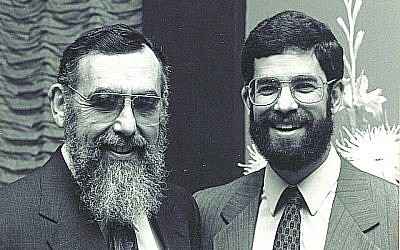
As people began to embrace a Torah-centered life, some moved into the neighborhood, and by the 1970s, it became more common to see people walking to shul on Shabbat.
By the 1980s, the need for neighborhood Jewish schools became apparent. Through the efforts of families and religious leaders, Torah Day School of Atlanta was founded in 1985. Temima High School for Girls came a decade later, and in 2002 Yeshiva Ohr Yisrael became a local option for Orthodox boys.
In 2003, TDSA built and moved into its current 10-acre campus on Lavista Road, and by 2015, students at Temima (now called Temima, The Richard & Jean Katz High School for Girls) attended classes in its new 18,000-square-foot building, after years in portable trailers.
Today celebrating its 30th year, the Atlanta Scholars Kollel emerged in the late 1980s as an important institution serving both Toco Hills and greater Atlanta as a place for dedicated Torah scholars and as an important source of community outreach programming.
By all accounts, one of the most impactful additions to the Orthodox community was the creation of the Toco Hills eruv in 1992. An eruv is an area enclosed by a wire boundary that essentially mixes households and public areas, which enables observant Jews to carry out activities otherwise forbidden on the Sabbath.
“The eruv transformed the landscape on Saturday,” Feldman said. “Before that, it used to be a walking neighborhood for men. Now you could bring young children to shul, host each other, and visit. It wasn’t necessary before then because there wasn’t the critical mass that needed it.”
The 1990s also brought the addition of a free-standing mikvah (ritual bath) as well as new synagogues, including Congregation Ner Hamizrach, a Sephardic Orthodox congregation, and Young Israel of Toco Hills, a Modern Orthodox congregation.
Rabbi Adam Starr arrived in Atlanta in 2008 from New York to assume the spiritual leadership of Young Israel. Like many of the smaller shuls in Toco Hills, Young Israel met for many years in a converted home on Lavista Road, but as testimony to the community’s growth, Young Israel celebrated Rosh Hashanah 2014 in its long-awaited new synagogue building (located, ironically, on the block between Christmas and Merry lanes). A decade ago, he recalled, Young Israel had a membership of roughly 150 families compared to about 225 today, with at least a dozen joining just this summer.
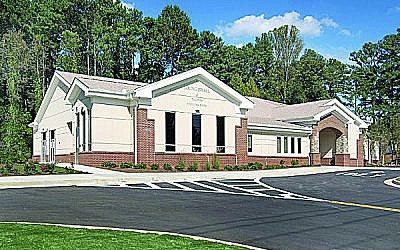
“The big blessing of our congregation is the amount of children,” Starr said. “On Shabbat mornings, there are strollers everywhere, youth everywhere – from high school kids to little babies. It’s a blessing to see such a bright Jewish future.”
Access to kosher meats and groceries, restaurants and stores offering Jewish ritual items and other Judaica is vital to the neighborhood. And while once there were just a few options in the area, such as The Kosher Gourmet and Chosen Treasures, which continue to serve the community, now there are many. Gilmer said that because of the market’s growth, some of his biggest competition comes from Kroger, Publix and Costco, which sell kosher foods, meats and wines, including for Passover.
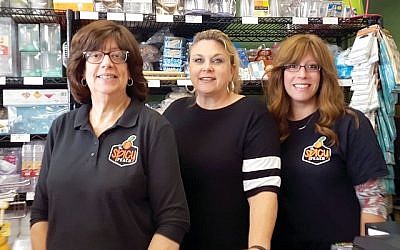
Lydia Schloss, Tzippy Teller (Schloss’s daughter) and Jodi Wittenberg are co-owners of The Spicy Peach, which sells a large variety of groceries, gifts and specialty items, including kosher ethnic foods like Mexican and Thai. Schloss described the “amazing” community reception when the store opened in the Toco Hill Shopping Center in January 2014. Despite a snowstorm, “It was jam-packed. People were so excited,” she said. Now customers come from all over the South, and the business is soon to enter the e-commerce market, Schloss said.
Today, with its complete infrastructure and amenities for an Orthodox life, Toco Hills attracts people of all ages from all over, and no longer suffers from what Feldman called the “brain drain,” where young people would leave Atlanta to begin their careers and start families in established Orthodox communities such as New York, Los Angeles or Detroit.
For a neighborhood that once had no Jews, today Toco Hills is home to a diverse Jewish community, including at least a half-dozen congregations representing various types of Orthodoxy, as well as Congregation Bet Haverim, a Reconstructionist congregation that bought Young Israel’s former building.
Feldman and Starr say it’s important to have a collaborative community no matter where one attends shul. Last year, for example, Toco Hills congregations put out the welcome mat for Hurricane Irma “refugees” from Florida needing Sabbath-observant communities. And in June, it was in Beth Jacob’s Heritage Hall that the community worked together to achieve a world record for assembling the largest Israeli flag ever from cookies, a project that raised more than $100,000 for nonprofits in Israel.
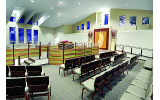
This year Beth Jacob is celebrating its 75th anniversary. When asked what that milestone feels like for him, Feldman answered: “It’s like — how does it feel to breathe oxygen? It’s all I know. It’s not separate for me. As a rabbi serving the community I grew up in, it’s exceptionally meaningful to me to serve the people I’ve know my entire life, or generations of them. It just feels very rooted.”
A relative newcomer to Toco Hills, Starr observed, “What’s really most beautiful here on a Shabbat morning around 11:30 or so when the synagogues are letting out along Lavista Road is everyone wishing each other good Shabbos, Shabbat shalom … it’s a beautiful thing.”



comments